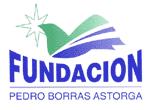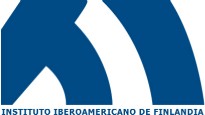Proverbs like “All roads lead to Rome, Todos os caminhos vão dar a Tavira or Kaikki tiet vievät Turkuun” are dependent on their cultural settings. They move on several levels of use. Proverbs from different people and different speech areas enable various interpretations. In addition, the same proverb may be used in several contexts and for many purposes. Proverbs have always been liable to bring on problems of translation and of general explanations. They can be classified according to different criteria: historical, linguistic, thematic, educational, logical etc.
Thus, the above-described rich diversity of viewpoints among paremiologists (scholars studying proverbs and proverbial expressions) around the world could be canalized to mutual benefit by contributions of complementary cultural fields. At least, paremiologists, paremiographers and enthusiasts of proverbs in Europe can unite knowing that a key value is solidarity and promoting an active citizenship, especially in times of crisis. The central aim of the Colloquium is to stimulate a debate and develop mutual learning between countries in order to promote good practice and encourage cooperation. In this year 2025, the AIP-IAP intends to contemplate the United Nations Decade of Ocean Science for Sustainable Development (Organized under the leadership of the UNESCO Intergovernmental Oceanographic Commission. 2021 – 2030); the International Decade of Science for Sustainable Development (Proposed by the UN with UNESCO for implementation with stakeholders such as the ISC and its international scientific unions. 2024 – 2033) and the International Year of Glaciers for 2025 which we aim to live up to, becoming one of the biggest global challenges and one of the most visible indicators of the climate emergency.

Paremiology has been only an additional or separate theme of more extensive issues in previous meetings concerning linguistic issues (e.g. http://europhras.org), historical approaches of cultural history or dealing with problems of translation. Paremiologists have not yet taken the bridge-building position they could have been able to have. As experts of tradition and communication, paremiologists and paremiographers have a huge potential contribution to mutual understanding between cultures.
Excellent collections of proverbs have been published since 15th century. Among them we can cite the multilingual collections from Gyula Paczolay (European proverbs in 55 languages, 1997), Arvo Krikmann and Ingrid Sarv (Eesti vanasõnad, 1987), Metīn Yurtbaşi (Turkish proverbs and their equivalents in Fifteen languages, 1993), the dictionary of Chu-Hsien Chen (The dictionary of Taiwanese proverbs and common sayings, 2009), as well proverb journals by Wolfgang Mieder (Proverbium: yearbook of international proverb scholarship, 1984-), Julia Sevilla-Muñoz (Paremia, 1993-). There have also been efforts to find criteria for classifying proverbs. One of the recent examples is the international type system https://www.mattikuusiproverbtypology.fi/ of a late Finnish academician Matti Kuusi.
It is time for Portugal, in Western Europe, to take a more active role by increasing proverb study and enthusiastic interest on paremiology as we have done in the recent past as shown with the examples from F.R.I.L.E.L. (Adágios, provérbios, rifãos e anexins da língua portugueza tirados dos melhores authores nacionaes e recopilados por ordem alphabetica, 1780) and António Delicado (Adágios portuguêses reduzidos a lugares communs, 1923). This is an effective way to reinforce identity of each country and to contribute for a better mutual understanding among nations from other cultural areas in the world.










